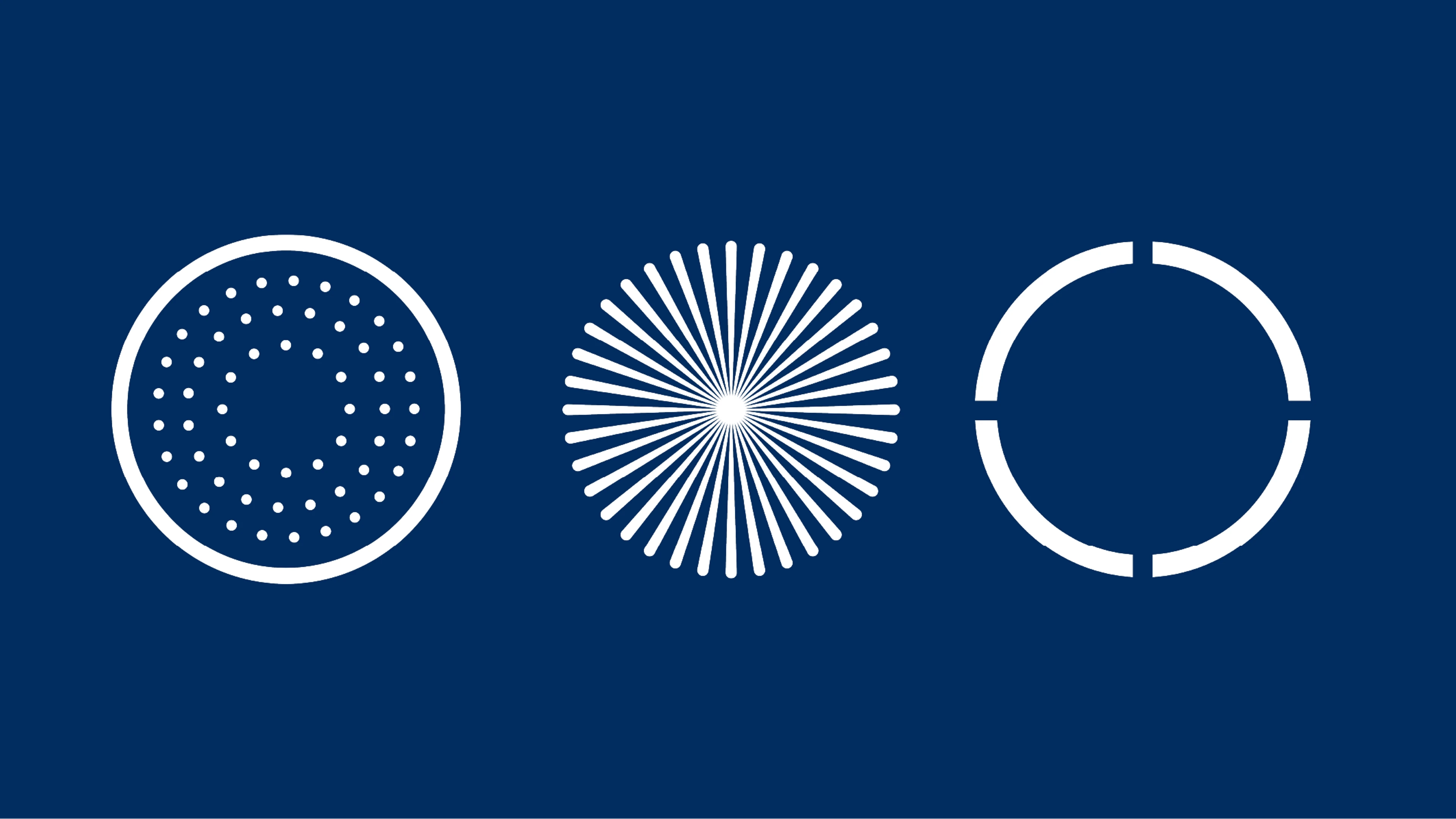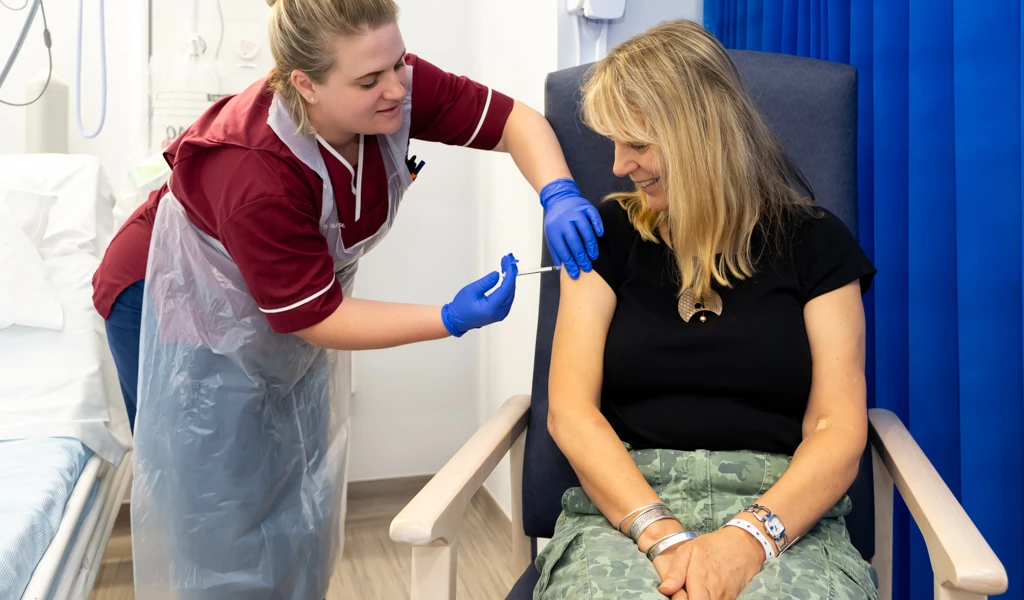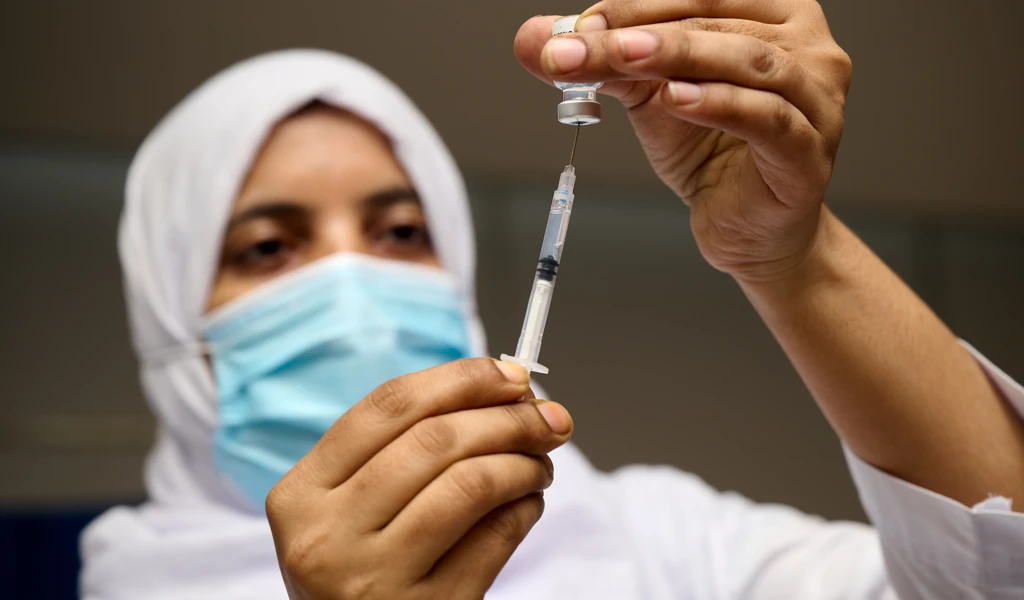CEPI expands partnership with Brighton Collaboration to support safety assessment of vaccine candidates

The Coalition for Epidemic Preparedness Innovations (CEPI) and the Brighton Collaboration, based at The Task Force for Global Health, today announced the expansion of a partnership contributing to the safety of future vaccines to prevent and respond to pandemics.
The CEPI-funded Safety Platform for Emergency Vaccines (SPEAC), managed by the Brighton Collaboration, provides crucial scientific expertise from an international network of vaccine safety experts to CEPI-backed projects. The team played a key role during the development and roll-out of COVID-19 vaccines through the Brighton Collaboration's efforts to create harmonized guidelines for collection of data on potential side effects.
The renewed partnership will see CEPI provide up to US$23 million over four years to broaden the scope of the SPEAC programme to deliver world-leading vaccine safety guidance and support for CEPI's 5-year strategy — known as CEPI 2.0 - and the organization's 100 Days Mission which aims to compress the development of new vaccines against pathogens with pandemic potential to just 100 days.
SPEAC will continue its ongoing work to support the safety assessment of vaccines and platforms in the CEPI portfolio, and will implement additional projects building on the lessons of its work to date. These include developing guidance and tools to safely enable earlier inclusion of special populations, such as pregnant women, into clinical trials; and supporting the digital transformation of vaccine safety endpoint definitions and tools by building a mobile application for the collection of safety data during early use of new vaccines.
Careful safety evaluation is paramount in vaccine development, so access to the Brighton Collaboration's outstanding vaccine safety expertise is crucial to the success of CEPI's vaccine portfolio. SPEAC's expanded scope will be vital to ensuring the safety of CEPI-funded vaccines and platforms over the next 5 years.
Brighton looks forward to continuing to build the foundation needed to assure the public that safety is a top priority during vaccine development, so that people feel comfortable using this life-saving tool.
Building vaccine safety capacity
Experience from COVID-19 demonstrated significant regional inequalities in capacity and resources to generate much-needed local or context-specific vaccine safety data during both clinical trials and vaccine rollout. To help address this, SPEAC will contribute to enabling equitable access to vaccine safety information and strengthening capacity for the safety surveillance of vaccines in the Global South, including through improving recognition and uptake of safety definitions and tools by Global South vaccine stakeholders, and facilitating links between research preparedness sites and existing global vaccine safety networks.
SPEAC's work to date
CEPI and the Brighton Collaboration launched SPEAC in 2019 to harness the expertise of the Brighton Collaboration's safety experts to help assess the safety of CEPI-funded vaccine candidates undergoing clinical trials. SPEAC has since created a meta-Data Safety Monitoring Board which provides safety monitoring services across the CEPI portfolio, and supported the global pandemic response by creating a list of Adverse Events of Special Interest (AESI) and other tools used by COVID-19 vaccine developers and the broader vaccine safety ecosystem which was endorsed by the WHO Global Advisory Committee on Vaccine Safety.
-ENDS-
About CEPI
CEPI is an innovative partnership between public, private, philanthropic, and civil organizations, launched in 2017, to develop vaccines against future epidemics. Its mission is to accelerate the development of vaccines and other biologic countermeasures against epidemic and pandemic threats so they can be accessible to all people in need.
Prior to COVID-19, CEPI's work focused on developing vaccines against Ebola virus, Lassa virus, Middle East Respiratory Syndrome coronavirus, Nipah virus, Rift Valley Fever virus and Chikungunya virus — it has over 20 vaccine candidates against these pathogens in development. CEPI has also invested in new platform technologies for rapid vaccine development against unknown pathogens (Disease X).
CEPI has played a central role in the global response to COVID-19, supporting the development of the world's largest portfolio of vaccines against SARS-CoV-2 and its variants with a focus on speed, scale and access, as well as co-leading COVAX, the global initiative to deliver fair and equitable access to COVID-19 vaccines. CEPI is also the world's leading funder of R&D for broadly protective coronavirus vaccines which could protect against future variants of COVID-19 as well as other coronaviruses with epidemic and pandemic potential.
CEPI has embarked upon an ambitious US$3.5bn five-year plan — called CEPI 2.0 — to dramatically reduce or even eliminate the future risk of pandemics and epidemics. Central to the plan is CEPI's goal — supported by the G7 and G20 — to compress the time taken to develop safe, effective, globally accessible vaccines against new threats to just 100 days. Achieving this ‘100 Days Mission' would give the world a fighting chance of containing a future outbreak before it spreads to become a global pandemic. Read the plan at endpandemics.cepi.net/
Follow our news page for the latest updates. Follow us @CEPIvaccines, @DrRHatchett, and LinkedIn.
About Brighton Collaboration and The Task Force for Global Health
The Brighton Collaboration is an organization of mostly volunteers formed in 2000 with the vision of building trust in the safety of vaccines through rigorous science. It facilitates the development, evaluation and dissemination of high-quality information about the safety of human vaccines such as standardized case definitions for adverse events following immunizations (AEFI). Such standards allow meaningful counting and comparison of AEFI's needed to ascertain whether a vaccine is safe or not. Brighton Collaboration standards are widely recognized by key institutions including the WHO, the Council of International Organizations of Medical Sciences (CIOMS), the FDA, the European Medicines Agency (EMA), the CDC, the European Centers of Disease Control and Prevention (ECDC) and several other national authorities and agencies. To increase efficiency and better synergize with other global health projects, the Brighton Collaboration joined as a program of The Task Force for Global Health in 2018.
The Task Force for Global Health, founded nearly 40 years ago to advance health equity, works with partners in more than 150 countries to eliminate diseases, ensure access to vaccines and essential medicines, and strengthen health systems to protect populations. Expertise includes neglected tropical diseases and other infectious diseases; vaccine safety, distribution and access; and health systems strengthening. For more information, visit www.taskforce.org and our annual report.


